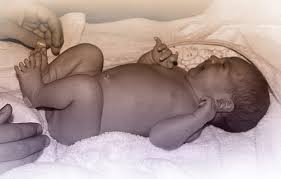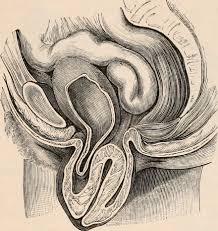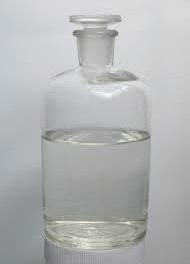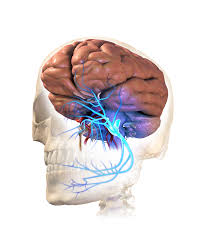By Dr. E. Fornias

CONGENITAL DEBILITY – Under this name is designated a particular state of general feebleness, usually and above all, in children born before term. The more premature (from six to nine months) the newly-born, the greater is this feebleness. But it is also observed in certain conditions of children born at term.
If premature labor is the usual cause of the congenital debility, there are other diseases of the parents, and, in particular, of the mother, such as syphilis, pulmonary tuberculosis, deep respective of such circumstances, it also occurs in twins, and in triplets. Privation, bad hygienic surroundings, alcoholism, and illness are etiological factors of importance. The weight of these debilitated creatures is quite inferior to that of the normal newly born, that is about 3,000 grammes.
The general aspect is that of a puppet more or less voluminous. The limbs are slender, thee body small, and the head poorly developed and oldish looking. These nurslings hold the breast badly or not at all, increasing the difficulty.
Moreover. The general Feebleness is such, that all the vital functions are insufficiently performed. Such are respiration, digestion and suction itself. However, if the infant is put to the breast, the nurse is healthy, the breasts are well formed and secrete well, we will observe that the nursling, although not with the power and voracity of a normal child, born at term, will softly and slowly draw at first the necessary nourishment to support life. Method and patience is all that is required to invigorate this nutritive act and prevent starvation.
Those children congenitally feeble can hardly maintain their normal temperature. They can stand better than other children the surrounding thermic changes, and they relatively support well the heat of the summer, provided, of course, they have a good wet-nurse, but they can less endure the winter cold. All the vital functions being extremely feeble, the temperature is abnormally low. On account of the comparatively large body surface and the imperfect development of the fat, the loss of heat is necessarily great; while, owing to the feebleness of the circulatory and respiratory functions, the production of heat is small. To compensate for this, the child lies curled up in the least possible space, thereby diminishing the heat radiation. It does not move or react to stimuli, its cry is faint, and it sleeps almost constantly. It is this imperfect calorification which seems to be the cause of sclerema, a disease constituted by in duration’s, seated in the cellular, sub-cutaneous tissue, developing with preference in the calf of the leg, and covered by a smooth, tight skin, difficult to fold or to be seized upon.
The color of the integument is red or yellow, according to the period of the trouble.
The sclerema, which gives to the soft parts a particular resistance, almost analogous to that of wood, or marble, is susceptible of generalization. It extends not only to the cellular tissue of the limbs and trunk, but to the face and lips.
One can well conceive the danger to which the child is exposed by this induration of the lips, which, rigid as cartoon, are no longer able to suck. In such cases the lungs and respiratory muscles are so involved as to render breathing impossible with all its fatal consequences.
The greater the congenital debility the more the cold seems to have a greater influence on this pathological condition and, as a consequence, the organic resistance is more feeble and the peripheric thermic abatement easier. It seems, indeed, as if under this influence – exterior refrigeration and feeble interior resistance, both thermic and organic – the fatty matters found in large amount in the cellular tissue, become fixed to produce sclerema.
According to knopfelmacher, this phenomenon is favored by the slighat amount of oleic acid fond in the fat of nurslings, and principally of the new-born.
The DIAGNOSIS of congenital debility proceeds from what has been stated. Its symptomatic elements are: a weight inferior to the normal, birth before term and in the pathological conditions mentioned above (syphilis, tuberculosis of the parents, and above all, of the mother, feeble effort of suction or of the act of sucking, and easy refrigeration). Of course, sclerema should be distinguish from aedema of the lower extremities, frequently observed in the newborn in many pathologicla conditions, such as infectious phlebites, diseases of the heart and liver, etc. We should also be careful not to mistake erysipelas of the same locality for sclerema. This erysipelatous inflammation is often an extension of that of the periumbilical region, and in its acute stage, that is during the period of development, is recognized by the fever, or, at least, by its peculiar redness and its limited swelling, etc. After this acute stage the tissues involved may remain more or less oedematous.
The PROGNOSIS of congenital debilitated children is bad, especially in winter and more so, if they become affected with bronchitis or broncho-pneumonia, or have not been protected in the stove, and cared for and nursed by an intelligent nurse.
We should bear always in mind that artificial feeding and even mixed feeding is fatal to this class of children. It is very properly said that they die from both cold and hunger.
No TREATMENT can be successful with this class of patients, without a well directed natural feeding and the employment of a proper stove (couveuse) Even sclerma becomes a rare affection by the proper use of the stove.
The remedies which have the besst clinical history are: CALC. CARB., SILICEA, CHINA, ARSENICUM, OPIUM, BARYTA, ALUMINA, IODUM, CAUSTICUM, PSORINUM AND SULPHUR.
KALI JOD. And MERCURIUS should be studied in syphilitic cases, and if the lips are parched and dry, BRYONIA is our best remedy. I have found ANT. CRUD. Well indicated in several cases of this kind.
Shluld SCLEREMA develop, the remedies to be studied are: BRYONIA, GRAPHITES, GUAIACUM, LACHESIS, PHOSPHORUS, HYDROCOTYLE, SILICEA, SOLANUM, STILLINGIA AND ANTHRACINUM. And if her is lack of animal heat: PULSATILLA, SEPIA, CALC. CARB., ARSENIC., CAMPHORA, AND VERATRUM ALB. May prove beneficial.
Each case should be studied with care, and only the totality of the symptoms will lead us to the indication of the appropriate remedy.




